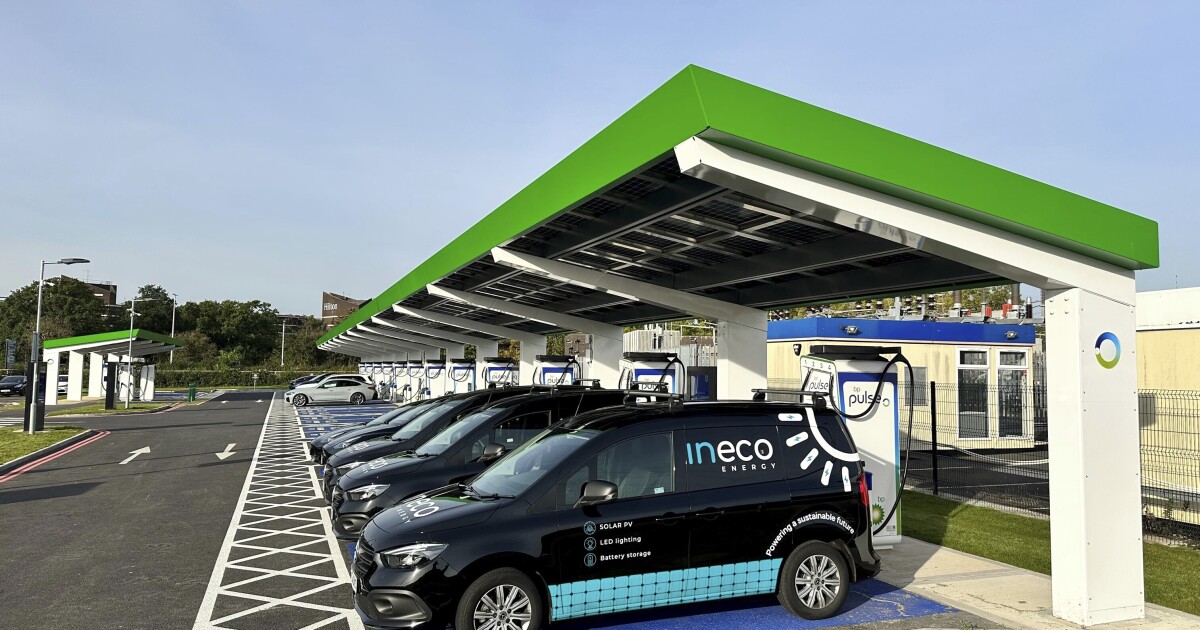

An Illinois town approved zoning changes and cleared the way for a Chinese-owned electric vehicle battery manufacturing plant costing $2 billion on Monday night.
The Manteno Village Board gave the green energy project the green light in a 5-1 vote that came months after Gov. J.B. Pritzker (D-IL) announced his success at getting Gotion, a Chinese battery manufacturing subsidiary of Gotion High-Tech based in California, to build its new plant with $536 million in state incentives.
GOP SENATORS LOOK TO CRACK DOWN ON FOREIGN ESPIONAGE WITH TOUGHER REPORTING REQUIREMENTS
The plant’s creation in Illinois boosts the Democratic governor’s agenda to make the state a hub for electric vehicle manufacturing and clean energy. Pritzker said he expects the plant will create 2,600 jobs in the area that sits roughly 40 miles from Chicago.
Residents have taken issue with Gotion High-Tech, whose corporate bylaws require the company to “carry out Party activities in accordance with the Constitution” of the Chinese Communist Party, the standard language for Chinese corporations under Beijing’s laws.
The plant will sit on a roughly 150-acre abandoned Kmart distribution plot near I-57. Manteno officials said the Village Board’s vote means Gotion’s project will be converted from “light industrial” to “heavy industrial,” sending the plant through the village’s permitting process.
However, many of the nearly 170 attendees at the village board meeting gathered in opposition to the plant project. One woman told the board ahead of the vote to “vote ‘no’ and tell J.B. to take this somewhere else,” according to the Chicago Tribune. Another was photographed yelling and wearing an orange U.S.A. T-shirt.
Resident Kerri Rolniak told the outlet she was frustrated over the tax breaks that Gotion will receive, as well as the plant’s impact on the environment and safety.
“We’re upset. We’re mad. We feel that they’re being very un-American. They’re all about themselves,” Rolniak said of the Village Board. “It should be about we the people. And it wasn’t about we the people. It was about their agenda.”
Manteno Mayor Timothy Nugent, who supported the project, acknowledged how polarizing and controversial the proposal has been for his community after the meeting.
“I hate to see the town divided,” Nugent said via the Chicago Tribune. “Believe me, there’s views on all sides and no one has a monopoly on the right views.”
Other residents at the meeting held signs in support of the project, such as “GO FOR GOTION.” Several labor groups were in support of the plant after the Chinese company agreed to use “100% of union crafts” for part of the project as well as any “ancillary work,” such as roadwork and bridge improvement.
“It’s going to generate revenue. Listen, not every student that’s going to Manteno High School is going to go to college,” Patrick Young, president of the Kankakee and Iroquois Building Trades and business representative for Local 150 for the International Union of Operating Engineers, told the Chicago Tribune. “Manufacturing is gone from Kankakee County. This is bringing manufacturing back. And I think it’s a good start.”
Supporters have dismissed people’s fears about the company belonging to China, noting that there have been several long-standing Chinese investments in the United States. They also argue the project paying an average of $55,000 a year for thousands of jobs is worth it and will spur economic development in local areas.
CLICK HERE TO READ MORE FROM THE WASHINGTON EXAMINER
The Pritzker administration has said Gotion has been working in the U.S. for about 10 years, including a Silicon Valley research and development center in 2014 opened under former President Barack Obama and a Cleveland-area facility opened in 2018 under former President Donald Trump.
The Illinois plant comes months after Gotion announced plans to build an EV battery plant in Big Rapids, Michigan, for $2.4 billion. The Michigan project has drawn much opposition and national attention from lawmakers and activists.





